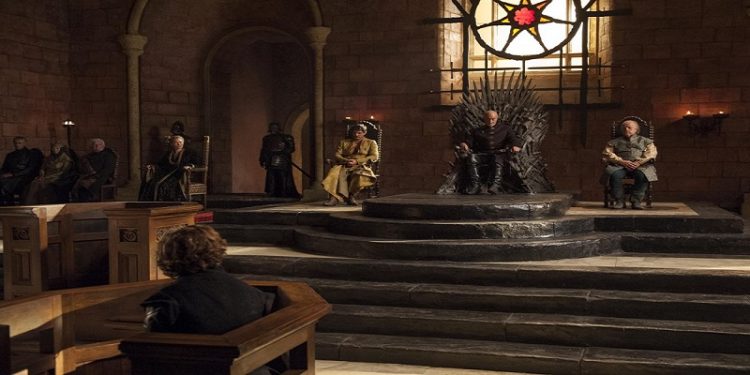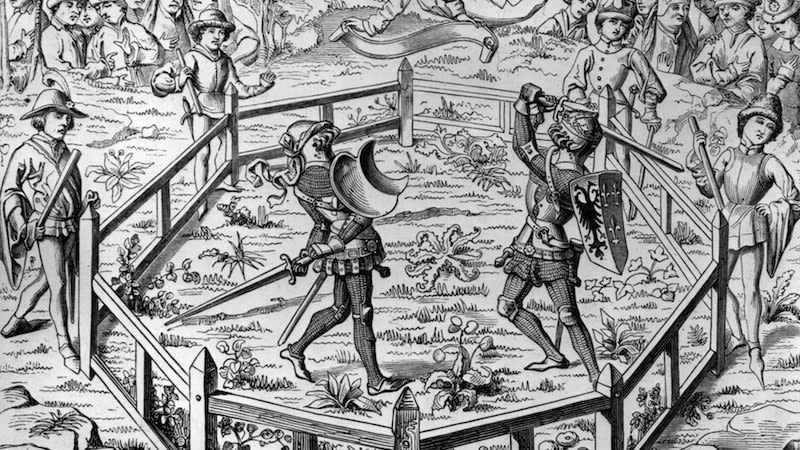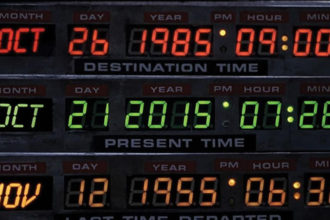Other Considerations for Courtroom Drama

There are a wide variety of considerations when planning a courtroom drama for your game, being that it is in a fantasy setting. Some of these are obvious, but others not so much. These include race, taboos, and laws, the court system and precedent, lawyering, jurisdiction, and tests of innocence.
Race
In a fantasy setting’s court of law, the considerations as to the plaintiff’s and the defendant’s race are factors worth noting because of how they typically interact with one another. Even among generally peaceable races, their relationships may not always have been quite so cordial. How would an Orc do in an Elven courtroom? How about a gnome in a dwarven one? Can one fantasy race fairly judge the actions of another? If so, what would that justice look like? Another consideration when it comes to race is how the court would be set up (but more about this later).
Taboos, Laws
Taboos are implicit prohibitions against behavior(s) that a specific culture feels is excessively repulsive or, perhaps, too sacred for ordinary people. The punishment for breaking taboos can be as simple as shunning the person in question, making them an outcast, or, in some more severe cases, the death of the person/people breaking the taboo. The good thing about taboos is that, for the most part, the punishments for breaking them are adjustable due to the person in question, their knowledge level, and the offended.
Laws, on the other hand, are more explicit, formulaic. Lawmakers develop laws to provide society with a method of judging what’s right and wrong in a given circumstance, as well as appropriate punishments for breaking them. The problem with this explicitness is that, for the most part, it can’t separate the person who’s committing the crime and the reasons for the crime to be committed.
The Court System & Precedent
When examining a court case, even in a fantasy setting, the court system is another thing to take into consideration. In real life, the courts can often become backlogged with cases. Cases can face continuances for any number of reasons – including such things as the hiring of a new lawyer and having improper time to become familiarized with the case. One (or the other) party may not show up. There are witnesses, testimony, cross-examination, and evidence brought for a case – and dismissed. Add to the mix other characters such a the bailiff, the court stenographer (in modern times), the jury (if used), and random people in the courtroom for other cases that set for hearing that day, as well as the judge’s personality. Though in a fantasy setting you might have an “animated object” that is told to write down everything. In all these things, if one is to wish to portray courtroom at least somewhat accurately, there is a rhythm, a procedure to all these things.
Then there is the interplay between lawyers, witness, and judge. There are the considerations of what’s allowed (or not) such as badgering a witness, asking leading questions and asking argumentive questions, as well as objections. While it’s in the best interest of the lawyer to represent his client to the best of his ability, it’s also important to note that they are not allowed to directly lie to the judge or incite their clients to do so, as doing so can be reasons for disbarment.
Precedent, according to Wikipedia are principles or previously established rulings in a previous legal case that is either binding on or persuasive for a court when deciding subsequent cases with similar issues or facts. When setting up the court case for your game, you might want to think about what other types of cases of a similar nature had preceded it and what the outcomes of those cases were, as well as what differences there were.
In a fantasy setting what types of magic might come into play for a court case? This article talks about the spell “speak with dead,” but some other notable examples may be relevant
- In some societies and races would magical evidence be admissible? If so, what types would be?
- Would animated objects or sentient artifacts be admissible as witnesses?
- Would familiars, creatures, monsters, or avatars be allowable as witnesses?
- If there were spells specifically designed to monitor an area and record what transpired, would that be admissible?
- Would time-altering spells or psionic powers be admissible to see past events?
- Would “zone of truth” spells be allowed, or would they become mandatory?
- Would courtrooms become zones of null magic to prevent magic from interfering with the proceedings?
Lawyering (and Prosecution)
In a fantasy setting, one has to determine what types of lawyers there are. Would lawyers be specializing in defense of magical crimes? Would major cities need to have their prosecuting attorneys know magic or have access to specialists who do? Furthermore, would their evidence areas (and lockups) need to have magical barriers to prevent those with minor magical abilities from tampering with evidence or escaping prison?
Jurisdiction
According to this website, Jurisdiction looks at whether or not a court has the power or authority to hear a case. This concept is important because if a court does not have both subject matter and personal jurisdiction, any judgments it makes are not binding. In real life, a civil court case, a local, state, and federal court case may all look very different due to the differences in what’s allowed, as well as the penalties that each may enact. In a fantasy setting, one has to wonder with multiple races, diverse deities, and countries one might have difficulty determining who has jurisdiction over a specific incident. Furthermore, when those who practice magic become a law unto themselves, are there special magic-only jurisdictions or tribunals that magic users must answer to for the misuse of magic?

Tests of Innocence
Note: these tests of innocence/ordeals were actually practiced during medieval times and were very much influenced by the Catholic church, which was integrated into life and society during that time.
- Ordeal By The Host: During medieval times, accused priests could “prove” his innocence by praying aloud that God would choke him. If he could consume a piece of altar bread (Host), and swallow it without any signs of discomfort or difficulty, he was believed to be innocent. However, if he were to choke on it, he would be found guilty. In a fantasy setting, something similar could be done with the holy food of one’s god. Conversely, the accused could be coerced to consume something deadly, as in Ordeal of the Bean, or reach into a basket containing a snake as in the Ordeal of the Snake and if the accused survived, s/he would be set free. But what happens if you have a race that’s completely immune to poison?
- Ordeal By Combat: When two people were quarreling over some minor issue, one way to figure out who is in the right was trial by combat, in which both parties (or their champions) would engage in a duel. These duels took place to settle a disagreement in the absence of adequate evidence, a confession, or witnesses. This method of settling disputes was mostly used to settle civil disputes and minor infringements. The winner was believed to be innocent because god (or gods) intervened. If the loser survived, many times s/he would be hanged or burned for his criminal offense. For lesser crimes, s/he might have his hand cut off and property confiscated if they owned any. In a fantasy setting, the types of combatants allowed might be less regulated, and the punishments less severe.
- Ordeal By Boiling Water: Priestly defendants could “prove” their innocence by reaching into a pot of blessed scalding water to retrieve stone in a church. The crime’s severity determined the depth of the water and could be as much as elbow deep for severe crimes. If the wound became infected, he was guilty; if not he would be set free. In a fantasy setting, what might need to be retrieved might be a holy symbol or another object of religious significance. Furthermore, instead of being located in a church, the location might be any holy site. Finally, defendants might have to reach into some normally innocuous substance such as a pot of iron shavings, be dunked (or thrown!) into a lake or other body of water, a bowl containing certain combinations of plants, or even an itchy substance like animal fur or wool. The rules of such trials could differ in that instead of being convicted if harm came to them, the court would find them guilty because they were NOT.
- Ordeal By Diving: In this trial, two poles secured at the bottom of a clear pond. The test was to see which of the parties’ representatives could hold their breath the longest at the bottom of the pond by holding onto the poles. The victor would win whatever was at stake, usually money. In a fantasy setting, what would happen if one of the races was amphibious or could naturally hold their breath for hours and the other contender was a land-dwelling race?
- Ordeal By Turf: Defendants facing charges could easily pass under an arch of turf without it falling on their heads to “prove” their innocence. If it did fall, the accused would be found guilty; otherwise, s/he would be found innocent. If a spellcaster within range of the arch could cast move earth spell were at the proceedings, he could cause the earth to fall on an innocent defendant, or prevent it from falling on a guilty party.
- Ordeal By Blood: To “prove” your innocence in this trial, all one had to do is touch a murdered body set atop a platform. Each of the suspected murderers would touch the body. If the wounds of the dead body bled afresh, the person who touched was guilty. What happens when a magic user who’s able to control liquids or blood causes the dead body to bleed for an innocent person?
I hope these ideas have given you something to think about for your next courtroom drama.



